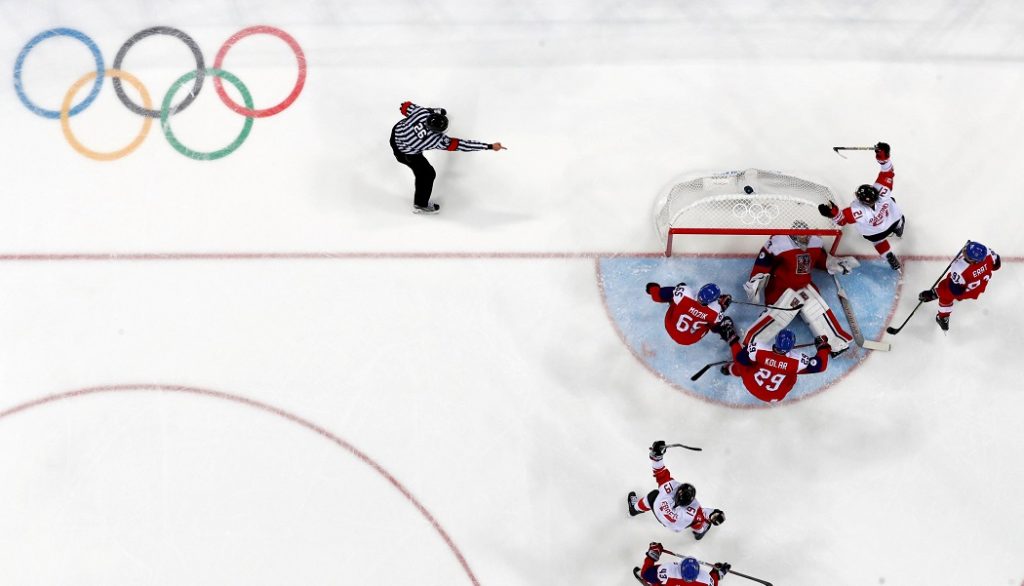Save The Games, Save The Planet
February 3, 2022
Climate change could end the Olympic Winter Games this century. In his latest column, Tim Crow suggests that when Beijing 2022 is over, it’s time for the IOC to reposition its winter brand, and dial up the climate threat.
In the sports business, we talk a lot about existential threats. Dated business models and governance structures; insufficient funding; declining audiences and participation; changing viewing habits; lack of youth relevance. The themes are familiar, and constantly in play.
We also, of course, live in dangerous times. The pandemic persists. Global and domestic politics are increasingly confrontational. Cultures are at war. The only certainties are controversy and uncertainty.
“As always, once the sport actually starts, the narrative will change.”
Sport, and in particular global sporting events, are continually drawn into this, none more so than the current Beijing Winter Olympics, around which the narrative has been dominated by criticism of the Chinese regime and its human rights policies – the third consecutive winter Games, following Sochi 2014 and Pyeongchang 2018, to have been caught in the political crossfire.
As always, once the sport actually starts, the narrative will change. The athletes will take centre stage, medals will be won and lost, and we will all fall in love with the curling.
But that should not let us lose sight of the one inescapable fact about the winter Games: it stands alone as the most existentially-threatened major sporting event of them all, as a result of climate change.
The snow and ice are melting, winter is contracting, and the end of the Winter Olympics as we know it is inevitable unless things change – fast. Every survey in the last decade has demonstrated this, and the outlook is as bleak as it is terrifying.

According to the most recent survey, if global greenhouse emissions remain on their current trajectory, only one of the 22 prior winter host cities – Sapporo – will be reliably cold enough to viably stage the Games by the end of the century. Another survey, in 2018, found that by 2050, nine of the previous host cities will be too hot to host the winter Games.
That’s what I call an existential threat.
Clearly, we need global solutions and systemic change to have the impact we need to protect the winter, the Games, and the planet. And of course, that needs to be led and effected by the governments and the politicians who spend so much of their time engaged in confrontation.
I’ll let others write about that.
“From 2030, all host cities must commit to being ‘climate positive’, by over-compensating for emissions.”
What I want to consider instead, is what the Winter Olympics could stand for, in the context of its potential imminent extinction.
The fundamental Olympic brand value, the best in human spirit, will naturally remain. It is what sets the Games apart. So too will sporting excellence, personified by the athletes, and of course the setting – in the case of the winter Games, the magnificent natural spectacle of the slopes. I stress ‘natural’ in contrast to the summer Games and its predominantly man-made backdrops.
That naturalness, and the need to preserve it, seem to me to be key to the future direction of the Winter Olympics.
This is not to suggest that sustainability is not already a major part of the Games’ DNA. Far from it. I first advised an Olympic sponsor with a sustainability strategy in 2010, for the Vancouver Games, and have done so for sponsors for every subsequent Games. Sustainability features in Agenda 2020, the IOC’s strategic manifesto, and is integral to Games operations: Beijing 2022 is committed to being carbon-neutral, and every venue will be powered by wind and solar energy; and from 2030, all host cities must commit to being ‘climate positive’, by over-compensating for emissions.
What I am suggesting is that from Milano Cortina 2026, the IOC radically dials up the climate threat in its messaging, obliges its broadcast partners to replicate, and in so doing makes the Winter Olympic Games the ultimate sporting symbol of the immediate need to avert the catastrophic effects of climate change threatening not just winter sport, but the entire planet.
Imagine it.
Not ‘Winter Is Coming’ (HT HBO), but ‘Winter Is Dying’.
Or ‘Save Winter, Save the Planet.’
Or maybe ‘Save The Games, Save The Planet.’
You get my drift, hopefully.
Apart from anything else, we’re talking about relevance here.
“Changing up would, at a stroke, give the Winter Olympics a new relevance.”
The point is, changing up would, at a stroke, give the Winter Olympics a new relevance, a new meaning, way beyond its normal core audience.
To countries where winter sports are alien, for example – in other words every country that right now, doesn’t watch the Winter Olympics.
And perhaps most importantly for the IOC, to the global young, the hardest audience to reach of all, for whom the climate crisis is absolutely at the top of their agenda: after all, it’s going to be their world.
In fact, to everybody.
You never know, maybe even the politicians might listen.



